- Home
- Tennessee Williams
Vieux Carre Page 3
Vieux Carre Read online
Page 3
[Pause]
You’re not a man of few words but a boy of no words. I’ll just sit on the cot if you don’t object.
WRITER: . . . I, uh . . . do need sleep.
NIGHTINGALE: You need some company first. I know the sound of loneliness, heard it through the partition. [He has sat on the cot. The writer huddles away to the wall, acutely embarrassed.] . . . Trying not to, but crying . . . why try not to? Think it’s unmanly? Crying is a release for man or woman . . .
WRITER: I was taught not to cry because it’s . . . humiliating . . .
NIGHTINGALE: You’re a victim of conventional teaching, which you’d better forget. What were you crying about? Some particular sorrow or . . . for the human condition.
WRITER: Some . . . particular sorrow. My closest relative died last month.
NIGHTINGALE: Your mother?
WRITER: The mother of my mother, Grand. She died after a long illness just before I left home, and at night I remember . . .
NIGHTINGALE [giving a comforting pat]: Well, losses must be accepted and survived. How strange it is that we’ve occupied these adjoining rooms for about three weeks now and have just barely said hello to each other when passing on the stairs. You have interesting eyes.
WRITER: In what way do you mean?
NIGHTINGALE: Isn’t the pupil of the left one a little bit lighter?
WRITER: . . . I’m afraid I’m . . . developing a—cataract in that eye.
NIGHTINGALE: That’s not possible for a kid.
WRITER: I am twenty-eight.
NIGHTINGALE: What I meant is, your face is still youthful as your vulnerable nature, they go—together. Of course, I’d see an oculist if you suspect there’s a cataract.
WRITER: I plan to when I . . . if I . . . can ever afford to . . . the vision in that eye’s getting cloudy.
NIGHTINGALE: Don’t wait till you can afford to. Go straight away and don’t receive the bill.
WRITER: I couldn’t do that.
NIGHTINGALE: Don’t be so honest in this dishonest world. [He pauses and coughs.] Shit, the witch don’t sleep in her bedroom you know.
WRITER: Yes, I noticed she is sleeping on a cot in the hall now.
NIGHTINGALE: When I came in now she sprang up and hollered out, “Who?” And I answered her with a hoot owl imitation, “Hoo, Hooo, Hooooo.” Why, the lady is all three furies in one. A single man needs visitors at night. Necessary as bread, as blood in the body. Why, there’s a saying, “Better to live with your worst enemy than to live alone.”
WRITER: Yes, loneliness is an—affliction.
NIGHTINGALE: Well, now you have a friend here.
WRITER [dryly]: Thanks.
NIGHTINGALE: Of course we’re in a madhouse. I wouldn’t tolerate the conditions here if the season wasn’t so slow that—my financial condition is difficult right now. I don’t like insults and la vie solitaire—with bedbugs bleeding me like leeches . . . but now we know each other, the plywood partition between us has been dissolved, no more just hellos. So tonight you were crying in here alone. What of it? Don’t we all? Have a cigarette.
WRITER: Thanks.
[Nightingale holds the candle out.]
I won’t smoke it now, I’ll save it till morning. I like a cigarette when I sit down to work.
[Nightingale’s steady scrutiny embarrasses him. They fall silent. After several beats, the writer resumes.]
There’s—a lot of human material—in the Quarter for a writer . . .
NIGHTINGALE: I used to hear you typing. Where’s your typewriter?
WRITER: I, uh, hocked it.
NIGHTINGALE: That’s what I figured. Wha’d you get for it?
WRITER: Ten dollars. It was a secondhand Underwood portable. I’m worried about just how I’ll redeem it. [He is increasingly embarrassed.]
NIGHTINGALE: Excuse my curiosity, I mean concern. It’s sympathetic . . . smoke a cigarette now and have another for mawnin’. You’re not managing right. Need advice and . . . company in this sad ole house. I’m happy to give both if accepted.
WRITER: . . . I appreciate . . . both.
NIGHTINGALE: You don’t seem experienced yet . . . kid, are you . . . excuse my blunt approach . . . but are you . . . ? [He completes the question by placing a shaky hand on the writer’s crumpled, sheet-covered body.]
WRITER [in a stifled voice]: Oh . . . I’m not sure I know . . . I . . .
NIGHTINGALE: Ain’t come out completely, as we put it?
WRITER: Completely, no, just one—experience.
NIGHTINGALE: Tell me about that one experience.
WRITER: I’m not sure I want to discuss it.
NIGHTINGALE: That’s no way to begin a confidential friendship.
WRITER: . . . Well, New Year’s Eve, I was entertained by a married couple I had a letter of introduction to when I came down here, the . . . man’s a painter, does popular bayou pictures displayed in shop windows in the Quarter, his name is . . .
NIGHTINGALE: Oh, I know him. He’s got a good thing going, commercially speaking, tourists buy them calendar illustrations in dreamy rainbow colors that never existed but in the head of a hack like him.
WRITER: . . . The, uh, atmosphere is . . . effective.
NIGHTINGALE: Oh, they sell to people that don’t know paint from art. Maybe you’ve never seen artistic paintings. [His voice shakes with feverish pride.] I could do it, in fact I’ve done good painting, serious work. But I got to live, and you can’t live on good painting until you’re dead, or nearly. So, I make it, temporarily, as a quick sketch artist. I flatter old bitches by makin’ ’em ten pounds lighter and ten years younger and with some touches of—decent humanity in their eyes that God forgot to put there, or they’ve decided to dispense with, not always easy. But what is? So—you had an experience with the bayou painter? I didn’t know he was, oh, inclined to boys, this is killing.
WRITER [slowly with embarrassment]: It wasn’t with Mr. Block, it was with a . . . paratrooper.
NIGHTINGALE: Aha, a paratrooper dropped out of the sky for you, huh? You have such nice smooth skin . . . Would you like a bit of white port? I keep a half pint by my bed to wash down my sandman special when this touch of flu and the bedbugs keep me awake. Just a mo’. I’ll fetch it, we’ll have a nightcap—now that we’re acquainted! [He goes out rapidly, coughing, then rushes back in with the bottle.]
The witch has removed the glass, we’ll have to drink from the bottle. I’ll wash my pill down now, the rest is yours. [He pops a capsule into his mouth and gulps from the bottle, immediately coughing and gagging. He extends the bottle to the writer.]
[Pause. The writer half extends his hand toward the bottle, then draws it back and shakes his head.]
Oh yes, flu is contagious, how stupid of me, I’m sorry.
WRITER: Never mind, I don’t care much for liquor.
NIGHTINGALE: Where you from?
WRITER: . . . St. Louis.
NIGHTINGALE: Christ, do people live there?
WRITER: It has a good art museum and a fine symphony orchestra and . . .
NIGHTINGALE: No decent gay life at all?
WRITER: You mean . . .
NIGHTINGALE: You know what I mean. I mean like the . . . paratrooper.
WRITER: Oh. No. There could be but . . . living at home . . .
NIGHTINGALE: Tell me, how did it go with the paratrooper who descended on you at Block’s?
WRITER: Well at midnight we went out on the gallery and he, the paratrooper, was out on the lower gallery with a party of older men, antique dealers, they were all singing “Auld Lang Syne.”
NIGHTINGALE: How imaginative and appropriate to them.
WRITER: —I noticed him down there and he noticed me.
NIGHTINGALE: Noticing him?
WRITER: . . . Yes. He grinned, and hollered to come down; he took me into the lower apartment. It was vacant, the others still on the gallery, you see I . . . couldn’t understand his presence among the . . .
NIGHTINGALE: Screaming old fa
ggots at that antique dealer’s. Well, they’re rich and they buy boys, but that’s a scene that you haven’t learned yet. So. What happened downstairs?
WRITER: He took me into a bedroom; he told me I looked pale and wouldn’t I like a sunlamp treatment. I thought he meant my face so I—agreed—
NIGHTINGALE: Jesus, you’ve got to be joking.
WRITER: I was shaking violently like I was a victim of—St. Vitus’s Dance, you know, when he said, “Undress”!
NIGHTINGALE: But you did.
WRITER: Yes. He helped me. And I stretched out on the bed under the sunlamp and suddenly he—
NIGHTINGALE: . . . turned it off and did you?
WRITER: Yes, that’s what happened. I think that he was shocked by my reaction.
NIGHTINGALE: You did him or—?
WRITER: . . . I told him that I . . . loved . . . him. I’d been drinking.
NIGHTINGALE: Love can happen like that. For one night only.
WRITER: He said, he laughed and said, “Forget it. I’m flying out tomorrow for training base.”
NIGHTINGALE: He said to you, “Forget it,” but you didn’t forget it.
WRITER: No . . . I don’t even have his address and I’ve forgotten his name . . .
NIGHTINGALE: Still, I think you loved him.
WRITER: . . . Yes. I . . . I’d like to see some of your serious paintings sometime.
NIGHTINGALE: Yeah. You will. Soon. When I get them canvases shipped down from Baton Rouge next week. But meanwhile . . . [His hand is sliding down the sheet.] How about this?
WRITER [with gathering panic]: . . . I think I’d better get some sleep now. I didn’t mean to tell you all that. Goodnight, I’m going to sleep.
NIGHTINGALE [urgently]: This would help you.
WRITER: I need to sleep nights—to work.
NIGHTINGALE: You are alone in the world, and I am, too. Listen. Rain!
[They are silent. The sound of rain is heard on the roof.]
Look. I’ll give you two things for sleep. First, this. [He draws back the sheet. The light dims.] And then one of these pills I call my sandman special.
WRITER: I don’t . . .
NIGHTINGALE: Shh, walls have ears! Lie back and imagine the paratrooper.
[The dim light goes completely out. A passage of blues piano is heard. It is an hour later. There is a spotlight on the writer as narrator, smoking at the foot of the cot, the sheet drawn about him like a toga.]
WRITER: When I was alone in the room, the visitor having retreated beyond the plywood partition between his cubicle and mine, which was chalk white that turned ash-gray at night, not just he but everything visible was gone except for the lighter gray of the alcove with its window over Toulouse Street. An apparition came to me with the hypnotic effect of the painter’s sandman special. It was in the form of an elderly female saint, of course. She materialized soundlessly. Her eyes fixed on me with a gentle questioning look which I came to remember as having belonged to my grandmother during her sieges of illness, when I used to go to her room and sit by her bed and want, so much, to say something or to put my hand over hers, but could do neither, knowing that if I did, I’d betray my feelings with tears that would trouble her more than her illness . . . Now it was she who stood next to my bed for a while. And as I drifted toward sleep, I wondered if she’d witnessed the encounter between the painter and me and what her attitude was toward such—perversions? Of longing?
[The sound of stifled coughing is heard across the plywood partition.]
Nothing about her gave me any sign. The weightless hands clasping each other so loosely, the cool and believing gray eyes in the faint pearly face were as immobile as statuary. I felt that she neither blamed nor approved the encounter. No. Wait. She . . . seemed to lift one hand very, very slightly before my eyes closed with sleep. An almost invisible gesture of . . . forgiveness? . . . through understanding? . . . before she dissolved into sleep. . .
SCENE THREE
Tye is in a seminarcotized state on the bed in Jane’s room. Jane is in the hall burdened with paper sacks of groceries; the writer appears behind her.
JANE [brightly]: Good morning.
WRITER [shyly]: Oh, good morning.
JANE: Such a difficult operation, opening a purse with one hand.
WRITER: Let me hold the sacks for you.
JANE: Oh, thanks; now then, come in, put the sacks on one of those chairs. Over the weekend we run out of everything. Ice isn’t delivered on Sundays, milk spoils. Everything of a perishable kind has got to be replaced. Oh, don’t go out. Have you had a coffee?
WRITER [looking at Tye]: I was about to but . . .
JANE: Stay and have some with me. Sorry it’s instant, can you stand instant coffee?
WRITER: I beg your pardon?
JANE: Don’t mind him, when his eyes are half open it doesn’t mean he is conscious.
TYE: Bullshit, you picked up a kid on the street?
JANE [suppressing anger]: This is the young man from across the hall—I’m Jane Sparks, my friend is Tye McCool, and you are—
WRITER [pretending to observe a chess board to cover his embarrassment]: What a beautiful chess board!
JANE: Oh, that, yes!
WRITER: Ivory and ebony? Figures?
JANE: The white squares are mother-of-pearl. Do you play chess?
WRITER: Used to. You play together, you and Mr.—McCool?
TYE: Aw, yeh, we play together but not chess. [He rubs his crotch. Jane and the writer nervously study the chess board.]
JANE: I play alone, a solitary game, to keep in practice in case I meet a partner.
WRITER: Look. Black is in check.
JANE: My imaginary opponent. I choose sides you see, although I play for both.
WRITER: I’d be happy to—I mean sometimes when you—
TYE [touching the saucepan on the burner]: OW!
JANE: I set it to boil before I went to the store.
[Jane sets a cup and doughnuts on the table.]
TYE: Hey, kid, why don’t you take your cup across the hall to your own room?
JANE: Because I’ve just now—you heard me—invited him to have it here in this room with me.
TYE: I didn’t invite him in, and I want you to git something straight: I live here. And if I live in a place I got equal rights in this place, and it just so happens I don’t entertain no stranger to look at me undressed.
WRITER [gulping down his coffee]: Please. Uh, please, I think I’d rather go in my room because I, I’ve got some work to do there. I always work immediately after my coffee.
JANE: I will not have this young grifter who has established squatter’s rights here telling me that I can’t enjoy a little society in a place where—frankly I am frantic with loneliness!
[The writer does not know what to do. Tye suddenly grins. He pulls out a chair for the writer at the table as if it were for a lady.]
TYE: Have a seat kid, you like one lump or two? Where’s the cat? Can I invite the goddam cat to breakfast?
JANE: Tye, you said you were pleased with the robe I gave you for your birthday, but you never wear it.
TYE: I don’t dress for breakfast.
JANE: Putting on a silk robe isn’t dressing.
[She removes the robe from a hook and throws it about Tye’s shoulders. Automatically he circles her hips with an arm.]
TYE: Mmm. Good. Feels good.
JANE [shyly disengaging herself from his embrace]: It ought to. Shantung silk.
TYE: I didn’t mean the robe, babe.
JANE: Tye, behave yourself. [She turns to the writer.] I’ve cherished the hope that by introducing Tye to certain little improvements in wearing apparel and language, I may gradually, despite his resistance—
TYE: Ain’t that lovely? That classy langwidge she uses?
JANE: Inspire him to—seek out some higher level of employment. [Ignoring Tye, she speaks.] I heard that you are a writer?
WRITER: I, uh—write, but—
JANE: W
hat form of writing? I mean fiction or poetry or . . .
TYE: Faggots, they all do something artistic, all of ’em.
JANE [quickly]: Do you know, I find myself drinking twice as much coffee here as I did in New York. For me the climate here is debilitating. Perhaps because of the dampness and the, and the—very low altitude, really there’s no altitude at all, it’s slightly under sea level. Have another cup with me?
[The writer doesn’t answer: Jane prepares two more cups of the instant coffee. Tye is staring steadily, challengingly at the writer, who appears to be hypnotized.]
Of course, Manhattan hasn’t much altitude either. But I grew up in the Adirondacks really. We lived on high ground, good elevation.
TYE: I met one of ’em once by accident on the street. You see, I was out of a job, and he came up to me on a corner in the Quarter an’ invited me to his place for supper with him. I seen right off what he was an’ what he wanted, but I didn’t have the price of a poor boy sandwich so I accepted, I went. The place was all Japanese-like, everything very artistic. He said to me, “Cross over that little bridge that crosses my little lake which I made myself and sit on the bench under my willow tree while I make supper for us and bathe an’ change my clo’se. I won’t be long.” So I crossed over the bridge over the lake, and I stretched out under the weepin’ willow tree: fell right asleep. I was woke up by what looked like a female but was him in drag. “Supper ready,” he—she—said. Then this freak, put her hand on my—I said, “It’s gonna cost you more than supper . . .”
JANE: Tye.
TYE: Huh, baby?
JANE: You will not continue that story.
TYE: It’s a damn good story. What’s your objection to it? I ain’t got to the part that’s really funny. [He speaks to the writer, who is crossing out of the light.] Don’t you like the story?
[The writer exits.]
JANE: Why did you do that?
TYE: Do what?

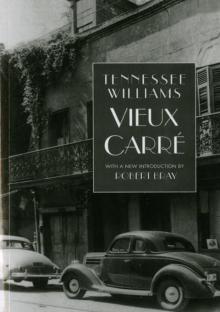 Vieux Carre
Vieux Carre The Night of the Iguana
The Night of the Iguana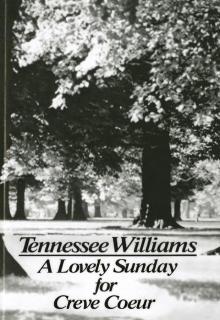 A Lovely Sunday for Creve Coeur
A Lovely Sunday for Creve Coeur Sweet Bird of Youth
Sweet Bird of Youth Streetcar Named Desire
Streetcar Named Desire The Milk Train Doesn't Stop Here Anymore
The Milk Train Doesn't Stop Here Anymore Crazy Night
Crazy Night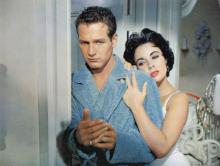 Three Plays of Tennessee Williams
Three Plays of Tennessee Williams A House Not Meant to Stand
A House Not Meant to Stand 27 Wagons Full of Cotton and Other Plays
27 Wagons Full of Cotton and Other Plays Tales of Desire
Tales of Desire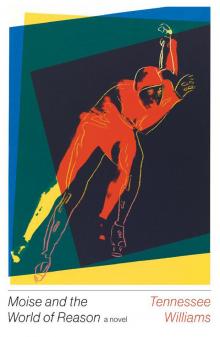 Moise and the World of Reason
Moise and the World of Reason The Traveling Companion & Other Plays
The Traveling Companion & Other Plays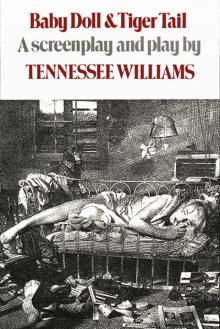 Baby Doll Tiger Tail: A Screenplay and Play by Tennessee Williams
Baby Doll Tiger Tail: A Screenplay and Play by Tennessee Williams Memoirs
Memoirs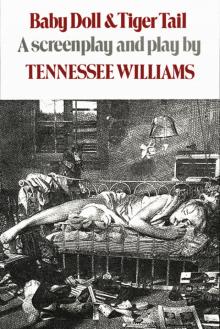 Baby Doll & Tiger Tail
Baby Doll & Tiger Tail Crazy Night (A Mulholland / Strand Magazine Short)
Crazy Night (A Mulholland / Strand Magazine Short)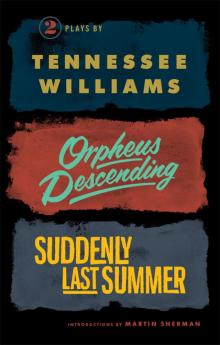 Orpheus Descending and Suddenly Last Summer
Orpheus Descending and Suddenly Last Summer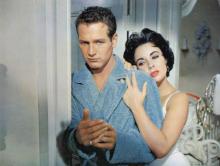 Three Plays
Three Plays The Glass Menagerie
The Glass Menagerie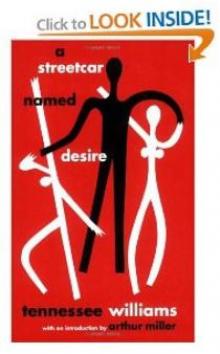 A Streetcar Named Desire
A Streetcar Named Desire